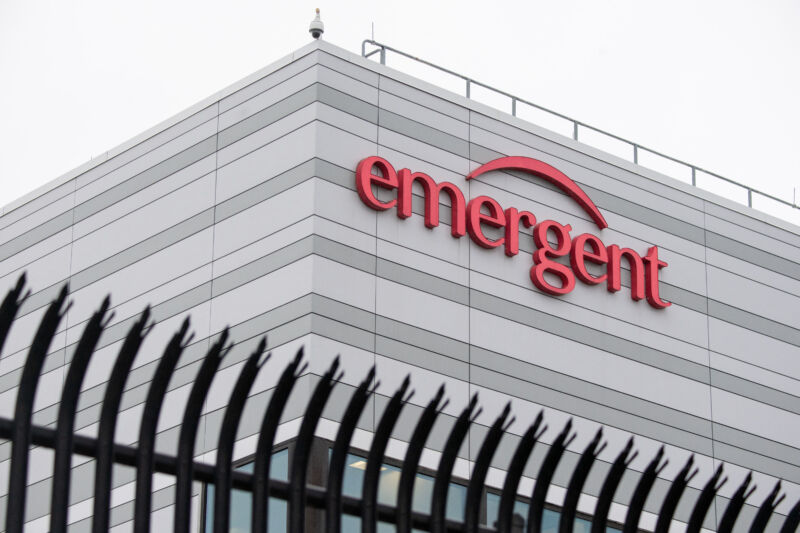
The US Food and Drug Administration last week asked Emergent BioSolutions to stop making Johnson & Johnson’s COVID-19 vaccine at its troubled facility in Baltimore, according to a regulatory filing Emergent released Monday.
The FDA had begun an inspection of the contract manufacturer’s facility on April 12 but requested on April 16 that production be halted “pending completion of the inspection and remediation of any resulting findings,” the filing reads. Any vaccine materials already made at the plant will be held in quarantine.
The production halt follows news last month that a mishap at the plant led to the ruin of 15 million doses of Johnson & Johnson’s one-shot COVID-19 vaccine. The ruined doses had reportedly been contaminated with ingredients from AstraZeneca’s COVID-19 vaccine, which was also being manufactured at the plant at the time.
The accident was a major stumbling block for Johnson & Johnson’s vaccine production—but not a consumer safety issue. All of the doses of Johnson & Johnson’s vaccine that have been used in the US so far have been produced in the Netherlands. The Emergent facility in Baltimore had not yet been authorized by the FDA for vaccine production when the doses were ruined, and none of the spoiled doses completed the production process.
Early this month, the Biden administration put Johnson & Johnson in charge of the facility and ordered AstraZeneca’s vaccine production out to prevent further cross-contamination problems. At the time, the company said that, despite the setback, it still expected to meet its commitment to deliver nearly 100 million doses of its vaccine to the US government by the end of May. But the current production pause again raises questions of whether the company will still be able to meet that goal.
"At this time, it is premature to speculate on any potential impact this could have on the timing of our vaccine deliveries” the company told Reuters.
In a statement to Politico, Emergent said:
While we await the FDA's full feedback, we are working with J&J and the FDA on strengthening the supply chain for this vitally important vaccine... We acknowledge that there are improvements we must make to meet the high standards we have set for ourselves and to restore confidence in our quality systems and manufacturing processes.
Pause beyond pause
For now, Biden officials say they have enough vaccine supply from Moderna and Pfizer-BioNTech to continue the current pace of vaccinations, which has exceeded 3 million doses a day recently.
Regardless of the production pause, use of Johnson & Johnson’s vaccine was already on pause as federal health experts and advisers review data linking the vaccine to an extremely rare but dangerous blood-clotting condition.
Last week, the FDA and the Centers for Disease Control and Prevention said that, out of more than 6.8 million vaccine doses administered, they had identified six cases of the unusual condition, which leads to dangerous life-threatening blood clots in combination with low levels of platelets. One person died of the condition, and another was said to be in critical condition.
A vaccine advisory committee for the CDC, called ACIP, held an emergency meeting last week but punted on making any recommendations for use of Johnson & Johnson’s vaccine going forward. Instead, the committee scheduled another public meeting for this Friday, April 23, from 11 am to 5 pm EDT where it will review further data and analyses.
In a White House press briefing Monday, CDC Director Rochelle Walensky said that the agency had received additional reports of blood-clotting cases possibly linked to the vaccine.
There have been “a handful of cases, not an overwhelming number of cases,” Walensky said in the briefing. “We are working through and adjudicating them and verifying whether they do in fact reflect a true case." The CDC and the FDA will then present their findings to ACIP on Friday, she said.
reader comments
184